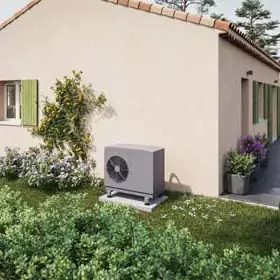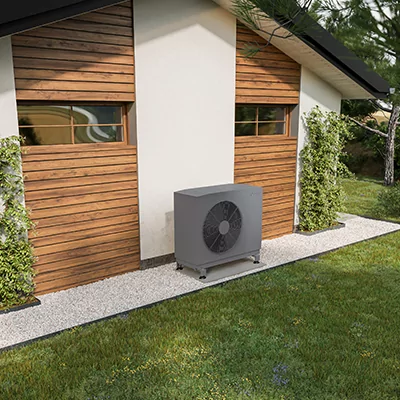

Table of contents

Table of contents
When you invest in a heat pump (HP) to heat or cool your home, it's essential to consider its lifespan and estimate when it will need replacement.
The lifespan of a heat pump varies based on several factors, including the type of system, maintenance, installation quality, and usage. Let's explore these factors.
What Is the Lifespan of a Heat Pump?
The lifespan of a heat pump varies depending on its type (air-to-water, air-to-air, geothermal) and brand.
Lifespan of an Air-to-Water Heat Pump
On average, an air-to-water heat pump has a lifespan of approximately 17 to 20 years. However, it's important to note that the quality of installation, regular maintenance, and proper use can influence its longevity.
Some reputable manufacturers offer heat pumps known for their durability. This is the case with intuis, which manufactures heat pumps known for their performance and resilience. intuis makes every effort to design heat pumps with a longer lifespan than the average. However, maintenance conditions and installation circumstances play a significant role in durability and the system's efforts to meet expected performance levels.
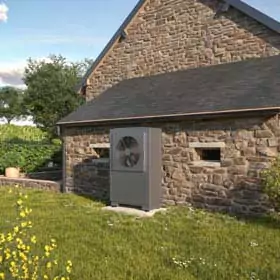
For example, maintenance tasks include:
- Cleaning the external evaporator to prevent the accumulation of leaves or debris.
- Cleaning the filters to prevent system clogging.
- Cleaning and treating the water circuit with flushing and checking the water network's turbidity. Removing sludge is crucial for system performance.
- intuis heat pumps are reputed to be robust, featuring UV-resistant treatment and anti-corrosion steel panels for greater resistance to external conditions.
Lifespan of an Air-to-Air Heat Pump
Air-to-air heat pumps generally have a shorter lifespan than air-to-water heat pumps, typically around 15 years. This is because these systems use outdoor air to heat or cool indoor air and may experience faster wear and tear due to climatic conditions and exposure to the elements.
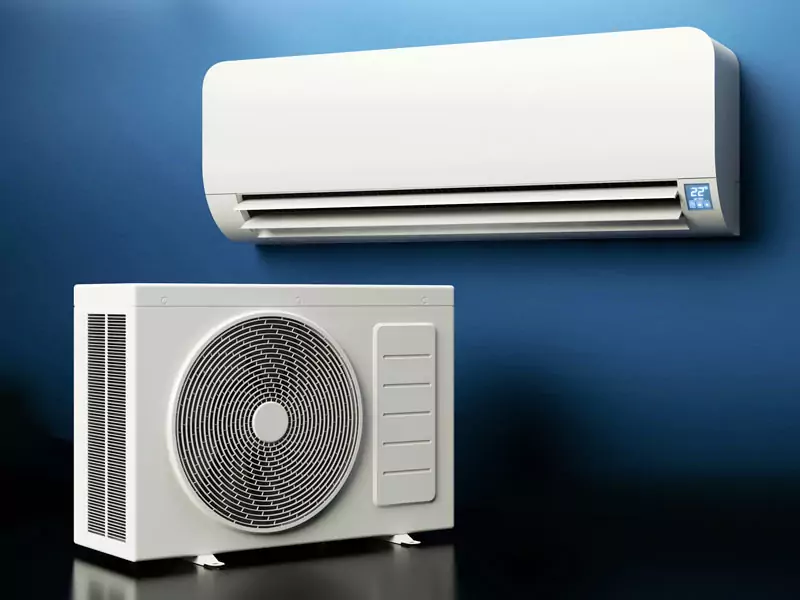
Lifespan of a Geothermal Heat Pump
Geothermal heat pumps are known for their longevity. Generally, they have a lifespan of 20 to 25 years or even longer, thanks to their use of stable geothermal energy from the ground. It's worth noting that the compressor, one of the key components of the heat pump, typically comes with a longer warranty due to its durability.
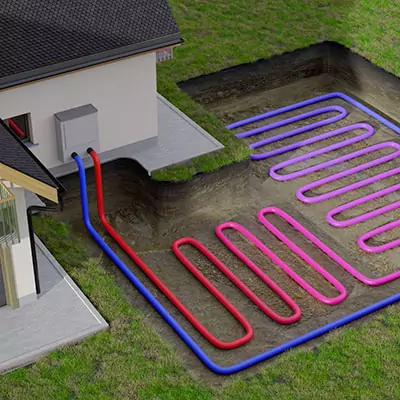
When to Replace Your Heat Pump?
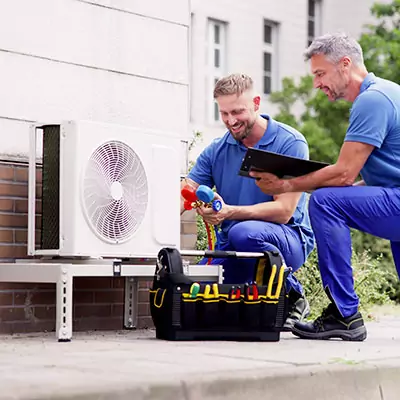
The heat pump (HP) operates within a complex system. It consists of various interdependent elements, with the HP generating heat, which is then distributed through the network and finally dispersed into the spaces to be heated.
Before concluding that the generator is responsible for a decrease in comfort, it's important to ensure that all other components contributing to the system are still performing well. Maintenance and upkeep play a crucial role in this.
Here are steps to consider:
1. First, check the condition of the water network.
2. Perform a turbidity test and undertake treatment if necessary, even consider flushing if it's deemed essential. This is of paramount importance because it directly affects system performance.
3. Inspect the emitters, and purge them if needed.
4. Don't neglect the heat pump system's maintenance, including filters and the evaporator.
5. A thorough check of the control system is necessary to identify any defects or deviations (such as sensor failures).
6. Replacing or upgrading a system component should be considered as a last resort, taking into account the necessary investments.
What Are the Warning Signs?
Here are the primary warning signs to consider in order to optimize the lifespan of your heat pump:
A significant decrease in energy efficiency: If your heat pump requires increasing amounts of energy to operate, it may be a sign that the system is losing efficiency, and it might be time to replace it.
Frequent and costly repairs: If you find yourself making frequent and expensive repairs to your heat pump, it's likely that it's nearing the end of its life, and it may be more cost-effective to replace it with a new unit.
Reduced indoor comfort: If you notice temperature variations in your home, cold or hot spots, or difficulties maintaining a constant temperature, it could indicate that your heat pump is no longer functioning optimally, and it's time to consider a replacement.
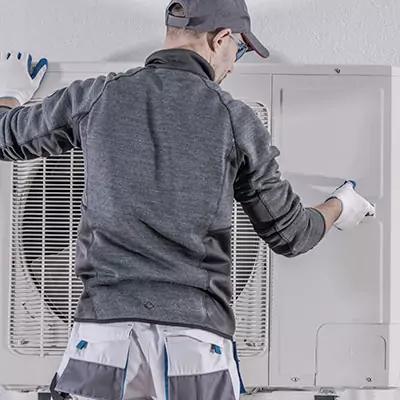
What Is the Average Cost of a Heat Pump?
The average cost of a heat pump depends on the type of system, its capacity, and the complexity of the installation. Prices can range from a few thousand euros to tens of thousands of euros. It is recommended to obtain quotes from several specialized installers to get accurate estimates based on your specific needs and budget.
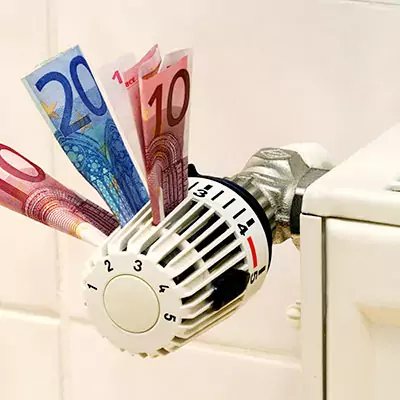
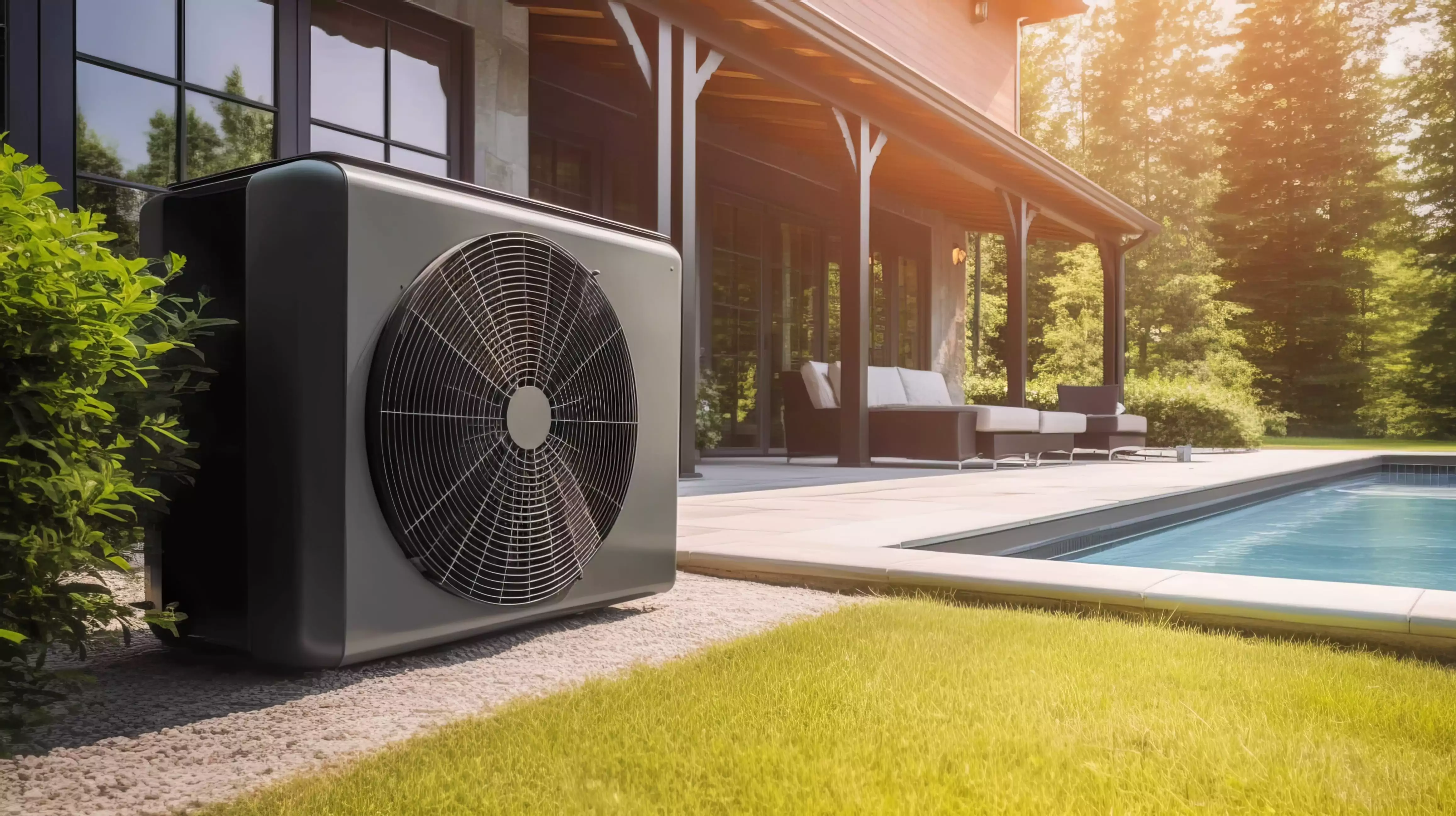
The Importance of Proper Heat Pump Maintenance
Regular maintenance of your heat pump is essential to ensure its proper operation and extend its lifespan. To do this, don't hesitate to enlist the help of a professional.
Consider asking professionals for maintenance contracts. For intuis air-to-water monobloc heat pumps, maintenance is not legally required since they do not use HFC refrigerants. However, we still recommend maintenance of the water circuit for optimal performance and greater system durability.
Regular Maintenance You Can Perform Yourself
To best maintain your heat pump, you can perform some basic maintenance tasks yourself, such as cleaning the filters, checking and cleaning heat exchangers, and ensuring that air inlets and outlets are not obstructed. These simple measures help maintain the heat pump's efficiency and prevent many breakdowns.
Mandatory Maintenance by a Qualified Expert
Regular maintenance (annually or bi-annually) by a professional to ensure proper upkeep is mandatory for heat pumps using refrigerants such as R32 or R410a. However, this requirement does not apply to systems using the R290 refrigerant, which is an advantage of our solutions. This maintenance includes thorough checks like refrigerant level verification, lubrication of moving parts, performance checks, and early detection of potential issues.
Regular maintenance by a qualified expert ensures your system's proper functioning and can extend its lifespan.
Important Note: Mandatory maintenance for heat pumps must be performed at least every 2 years for air-to-water heat pumps with a capacity exceeding 4 kW.

